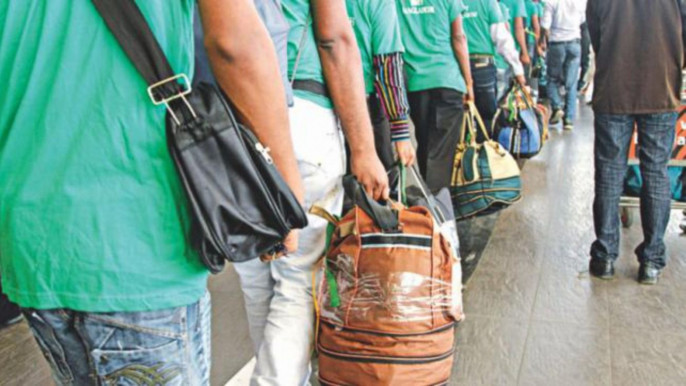Expatriates’ Welfare and Overseas Employment Minister Imran Ahmed has disclosed the government’s aim to send 1.5 million (15 lakh) Bangladeshi workers abroad this year. He mentioned that the labor market is expanding, particularly in China. Additionally, workers are being sent to destinations such as Romania, Greece, Italy, and Libya. Imran Ahmed emphasized the importance of workers improving their skills and following proper procedures when seeking employment overseas.
In 2022, Bangladesh achieved a record by sending 1.125 million workers abroad, surpassing the previous high of 1.008 million in 2017. This growth was attributed to increased demand in major destinations and the opening of new markets. Despite the surge in manpower, there is still a significant proportion of unskilled labor migrants, accounting for 78.64% in November 2022, up from 75.24% in the previous year.
The rebound in overseas employment is associated with the reopening of the Malaysian labor market, improved economic conditions in Gulf countries due to rising oil prices, and the normalization of the COVID-19 situation, which allowed new aspirants to travel abroad. Additionally, an increase in the quota for Bangladeshi migrants in Saudi firms from 25% to 40% has contributed to this record growth.
It is expected that a similar number of workers will go abroad in 2023, as major sourcing countries like Saudi Arabia have already expressed high demand for labor from Bangladesh. The pandemic-induced restrictions in 2020 led to a decline in overseas employment, with only 2.17 lakh workers sent abroad that year. In contrast, in 2022, an average of 93,750 workers were sent each month. In December of the previous year, 95,988 workers migrated abroad.
Saudi Arabia remains the top destination for Bangladeshi migrants, generating 56% of all overseas jobs until November of the previous year, followed by Oman, the United Arab Emirates (UAE), Singapore, Malaysia, Qatar, Kuwait, and Jordan.




